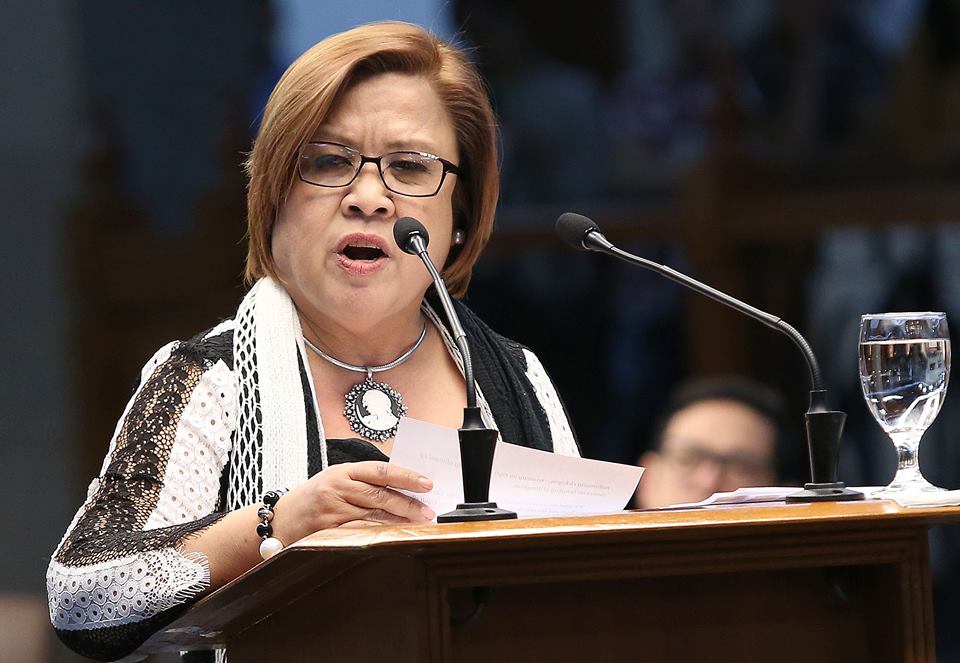News
De Lima asks Facebook: Take down fake news against me

FILE: Detained Senator Leila De Lima (Photo: Senate of the Philippines/Facebook)
MANILA, Philippines — Detained Senator Leila De Lima on Sunday appeal anew to social media giant Facebook to take down the supposed fake news stories and clips against her as it “mislead the public” and tarnish her reputation.
De Lima, an opposition senator and known Duterte critic, said Facebook should “exercise some responsibility” for the content and posts it shares and disseminates on its platform.
“It has been a year since I last wrote a letter to Facebook expressing my concern over the continued proliferation of fake news that has been populating our social media, notably on Facebook, but the letter remained unanswered and unacted,” De Lima said.
“As the world’s most-used and largest social network, the people behind Facebook should take disinformation seriously, considering that not everyone is well-versed about the distinction between fake news, propaganda, satire and fiction,” the lady senator added.
In January last year, De Lima wrote a letter sent to Facebook Philippines Country Director Digs Dimagiba addressing the proliferation of fake news and clips on the social media platform.
In her letter, the senator expressed concern over “shadowy people” who blemish the name of some people through the distribution of fake news.
“These fake news stories have also mutated into fake videos and audio clips that have been recklessly shared and re-shared. Unfortunately, some of these fake news stories, videos and audio clips have found their ways into our mainstream news media and consequently, confused the public between real and fake news,” De Lima wrote.
De Lima also attached in the letter a list of fake news peddled against her as distributed on Facebook such as reports of her resignation as senator, her hospitalization after a suicide attempt, her purchase of a USD 6-million mansion in New York, and the United Kingdom congratulating the Senate for ousting De Lima.
The lady senator urged Facebook to find means of ending the propagation of fake news stories usually distributed by “paid trolls and hackers.”
“These fake news stories are negatively affecting our national discourse and public opinion. The continued distribution of false stories has also become a tool for power-hungry public officials to feed the public with poison and lies to propel their political career to greater heights,” De Lima said.
De Lima further called on the public to be “more critical” about the content they read and shared online which may be “maliciously peddled by government officials who have political agenda to destroy their critics.”
“Let’s not believe everything that we read online and easily fall victim into the proliferation of fabricated stories and online trolls. These fake news destroy not only individuals but also their families,” she said.
It can also be recalled that De Lima in January last year delivered a privilege speech denouncing the spread of fake news in the Internet and other social networking sites, describing fake news as a “virus” that could “bring about a zombie apocalypse.”





















